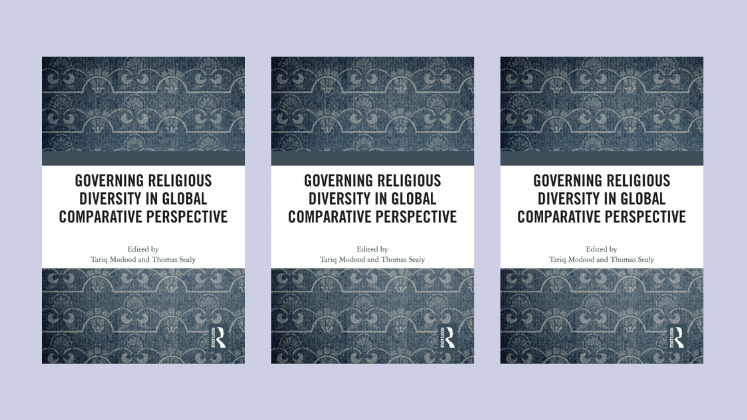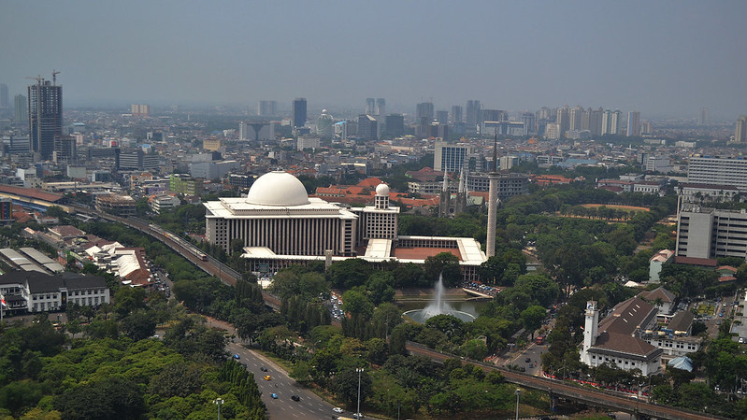“A powerful tool for reflecting on the role of secular liberal governance in a world increasingly defined by religious diversity” — a review of Governing Religious Diversity in Global Comparative Perspective, edited by Tariq Modood and Thomas Sealy (2024) Routledge.
Governing Religious Diversity in Global Comparative Perspective, edited by Tariq Modood and Thomas Sealy, provides a timely and comprehensive qualitative framework for better understanding how religious diversity is governed around the world. Despite the complexity of the task undertaken, Modood and Sealy have succeeded in collating an impressive range of essays applying their innovative analytical framework to regional case studies. What this volume does excellently, if at times methodically, is both highlight common global trends and analyse regional differences in operative norms shaping political arrangements vis-à-vis religious communities. Ultimately, this volume equips the reader with a powerful tool for reflecting on the role of secular liberal governance in a world increasingly defined by religious diversity.
The authors begin the volume’s opening chapter by adopting a minimalist definition of political secularism to guide the remainder of the analysis: ‘the core idea of political secularism is the idea that politics or the state has a raison d’etre of its own and should not be subordinated to religious authority, religious purposes or religious reasons’ (pg. 8). In deliberately adopting a minimalist definition, Modood and Sealy helpfully enable a broader consideration of the multitudes of political arrangements considered in this book. The key contribution of this volume, a comparative framework for classifying trends in religious governance globally, is subsequently presented. This framework comprises five ‘modes’ of governance: (1) majoritarian nationalism; (2) secularist statism; (3) liberal neutralism; (4) moderate secularism; and (5) pluralistic nationalism. To each mode is ascribed certain characteristics; the authors here craft a spectrum of sorts, differentiating each mode by the extent to which religiosity and toleration of minority religious communities are integrated into the operative legislative and judicial apparatus of the state. Crucially, the authors conclude this chapter by drawing a careful distinction between dominant operative norms (DON), those norms which form the bedrock of religious governance, and qualifying operative norms (QON), which ‘limit, adjust or modify’ how DONs function in practice. In distinguishing these two norms, the authors skillfully avoid a one-dimensional analytical approach to governing religious diversity and set the stage for a more robust examination of the ‘qualitative character of state-religion connections’ (pg. 9).
The bulk of this volume dedicates itself to the application of the framework to real-world policy contexts. Drawing on contributions from a variety of international scholars, six regions and over 20 countries are examined. Each chapter follows a similar structure: the relationship between the state and religion is diligently traced through history to the present day, culminating in a classification of each country in accordance with the framework and observed DONs and QONs. Each chapter concludes with a reflection on the most significant contemporary challenges facing religious governance in the respective regions.
Ultimately, the collection of case studies presented provides, in the words of the editors, ‘an analytically nuanced reading that points to similarities as well as allowing us to account for important differences and developing trends’ (pg. 121). The framework and analysis adopted prove particularly helpful in understanding three key trends: (1) the challenge of integrating and accommodating minority religions; (2) the increasingly intimate relationship between national identity and religion; and (3) the use of religion to consolidate political power and shape social norms.
The strength of this volume in explaining contemporary trends is well demonstrated in ‘Western Europe and Australia: negotiating freedoms of religion.’ In this chapter, the authors explain how responses to the challenges of accommodation and integration in Western Europe (and Australia) are shaped by different historical perceptions of the role of religion in public life. In systems of moderate secularism (e.g. UK, Germany, Australia), the authors point out, religion has historically been seen as ‘a public good’ (pg. 24). This has manifested politically in the form of (relatively) inclusive politics vis-à-vis religious communities. In these countries, minority religious groups have generally been granted more freedom to operate and practice in the public – for instance, as charities in the UK or public entities in Germany. By contrast, countries which subscribe to secular statism (e.g. France) have historically viewed religion as a problem and consequently relegated its practice to the private sphere and leveraged state power to suppress its public expression. By applying the comparative classifications to these countries in accordance with Modood and Sealy’s framework, a more cogent understanding of contemporary trends is enabled. For example, this explains why such drastically different approaches to the regulation of religious bodies and public expressions of faith during and after the 2015 European migrant crisis emerged.
An additional strength of this volume is its compelling examination of the legal foundations of faith-state relationships. In Chapter 5, ‘Negotiating religion-state relations in the MENA region: actors’ dynamics, modes, and norms,’ the authors help the reader makes sense of the religious foundations of judicial systems in the region, specifically Morocco and Egypt. While these two nations are ostensibly very different, the authors draw attention to a striking similarity: religion lies at the heart of their governance systems. In Morocco, for example, Article 41 of the 2011 Constitution declares the King to be ‘Commander of the Faithful,’ thus demonstrating a direct link between faith and the state. Similarly, the 2012 Egyptian Constitution enshrines ‘the principles of Islamic Sharia [as] the principal source of legislation’ (pg. 79). Both states are accordingly classified as majoritarian nationalist, although key differences between the two are also considered. This approach enables the reader to think more broadly and efficiently about potential future challenges likely to face both countries, as well as how responses may differ.
Modood and Sealy have undoubtedly made a significant contribution to an academic understanding of religious governance through this volume; however, it must be noted that the book’s repetitive structure and methodical presentation of case studies may limit its impact beyond the academy. Principally, while the proposed comparative framework is a helpful tool for understanding governance of religious diversity in systems which do conform to the constraints outlined, it should not be (neither is it) assumed by the authors that the framework perfectly captures the operative norms evident in each political context. Examining the qualitative nature of incredibly complex state-religion relations compels a degree of analytical flexibility that this volume does not seem to explicitly provide.
Structural rigidity notwithstanding, the authors should be commended for developing a digestible and applicable comparative framework for better understanding the nature and consequences of complex systems of religious governance. Through the application of its proposed framework to global case studies, this volume succeeds in providing a robust examination of how state-religion connections function in practice without succumbing to an all-too-common simplistic characterisation of religious governance. This book will undoubtedly prove to be an invaluable resource for constituencies seeking a better understanding of contemporary and future trends in socio-political responses to religious diversity.






